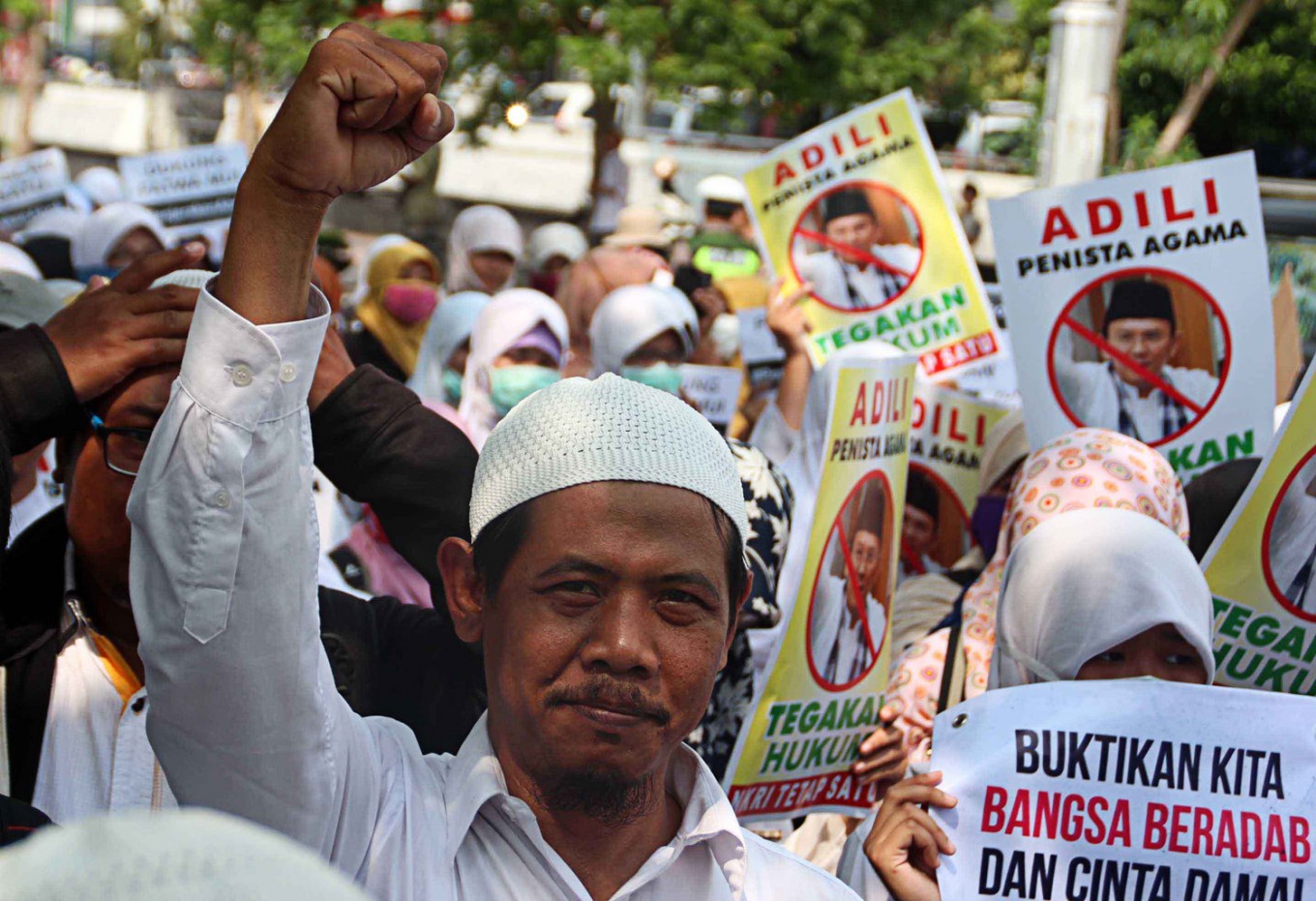Popular Reads
Top Results
Can't find what you're looking for?
View all search resultsPopular Reads
Top Results
Can't find what you're looking for?
View all search results'Disruptive' society and our education
As an educator, I argue that this “disruptive” society is a consequence of an educational failure to create mature citizens who are not easily trapped in racial, religious and political conflicts.
Change text size
Gift Premium Articles
to Anyone
T
here are no signs that our society has become a less “disruptive” place lately as we have observed in the case of Jakarta Governor Basuki “Ahok” Tjahaja Purnama. We have seen how our society is divided into two groups, those who want Ahok to be tried and convicted of blasphemy and those who conclude that Ahok did not insult the Quran.
Both groups utilize all kinds of media such as WhatsApp, Facebook, Twitter and blogs to defend their views. The increasing use of these internet technologies in our society makes the case much more “disruptive” as it just takes one click to spread both pro and con views. The spread of pro and con views can be very dangerous because our society has little ability to filter provocative news due to low media literacy and other underlying factors such as strict religious understanding.
The chaotic rally on the Nov. 4 could have a bigger implication in our society if we do not seek ways to reduce this conflict.
As an educator, I argue that this “disruptive” society is a consequence of an educational failure to create mature citizens who are not easily trapped in racial, religious and political conflicts. I am going to unpack why our society can be so divisive from an educational perspective borrowing the terms from Lynn Davies, a professor of conflict and education at Manchester University, in the United Kingdom.
First, we need to look at how knowledge is being taught in our schools. As we all live in this complex and fast changing global world our education should move on from teaching a single reality to teaching complex and global issues to students so they are aware of the societal issues surrounding them.
More importantly, we need to train our students in critical thinking skills to analyze propaganda and media issues.
For example, in teaching social studies or religion, teachers could show and discuss a poster about Islamophobia in western countries and a poster about how extremists spread the message to kill westerners. By facilitating students in this activity, teachers could enable students in a situation where they can stand up against religious hatred and understand how to respect the religions of the world.
Clearly, teachers should incorporate topics such as conflict education, global education, and political education so that students can be aware of current issues and face them rationally.
Second, our education should go back to a value system that accepts the national ethos of Pancasila as a metanarrative in our country. As Indonesian citizens, we should all know that we embrace Pancasila as a culturally accepted universal truth to legitimize and manage power in our country.
However, the teaching of Pancasila seems not to be well-grounded within our schools. This can be problematic as our educational system fails to nurture the values of Pancasila within daily teaching activities. We tend to translate the teaching of Pancasila into ceremonial activities such as the flag-hoisting ceremony every Monday rather than asking students to understand the concept of Pancasila cognitively.
The teaching of Pancasila should be fully adopted within the school system, for example by facilitating all the religious activities in the school system such as that proposed by Purwakarta regent Dedi Mulyadi by providing places of worship for all religions in schools. Such activity could nurture tolerance among school stakeholders.
Educators should also be aware of how global value systems might be circulating in our society that are contradictory to our culturally accepted metanarrative. In this information technology era, information can be circulated fast and widely; therefore, our education needs to teach media literacy to students so that they will not be influenced by extremists on social media.
Lastly, we need to think about educational processes in our schools. There have been a lot of cases reported in schools about revenge, punishment and bullying, be these in terms of teacher-student relations or student-student relations. Moreover, it is very often that the school system punishes students as opposed to engaging in restorative justice by using a reparative procedure when a student breaks a school regulation. The punishment approach in schools should be replaced by a more humanistic procedure in order to break the cycle of violence.
Schools should also embrace multiple realities by teaching students learning activities to allow them to speak freely, honestly and openly.
Certainly, all of the three dimensions identified are not a shortcut toward solving this “disruptive” society. However, we should all believe that education can still be used as a way to promote a peaceful and tolerant society.
***
The writer is a PhD candidate at the Faculty of Education, Monash University, he is a member of the collaborative research team on educating against extremism initiated by Monash University and UIN Walisongo Semarang.
---------------
We are looking for information, opinions, and in-depth analysis from experts or scholars in a variety of fields. We choose articles based on facts or opinions about general news, as well as quality analysis and commentary about Indonesia or international events. Send your piece to community@jakpost.com.










